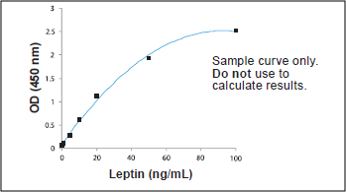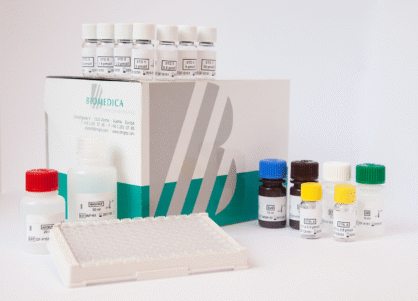Leptin ELISA Kit
Leptin is a hormone primarily produced by adipose tissue that plays a crucial role in regulating energy balance, appetite, and metabolism. It communicates the body’s energy stores to the hypothalamus in the brain, helping to suppress hunger and promote energy expenditure. Leptin levels typically correlate with the amount of body fat, with higher levels seen in individuals with increased adiposity. However, in obesity, a state of leptin resistance often develops, where despite high leptin levels, the brain does not respond adequately, contributing to overeating and weight gain.
In both research and clinical settings, leptin serves as an important biomarker for studying obesity, metabolic syndrome, and related disorders such as type 2 diabetes. Measuring leptin levels can help assess nutritional status and energy balance, as well as identify cases of leptin deficiency or resistance. Clinically, leptin testing is valuable in diagnosing rare genetic causes of obesity and evaluating metabolic health. In research, leptin is also investigated for its broader roles in immune function, reproduction, and cardiovascular disease, making it a versatile biomarker for understanding complex physiological and pathological processes.
This Leptin ELISA Kit is manufactured in USA by Eagle Biosciences.




